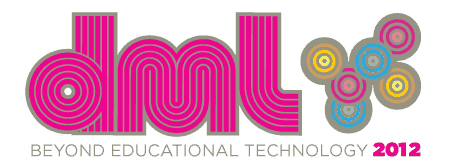MRT: Tinkering with Tangibles: Electronic Textiles in Classrooms, Colleges, and Clubs
Today’s discussions about digital media and learning focus largely on video games, social networks, and other screen-based technologies. There is little recognition, if any, that digital media has moved from the screen and into our material world. Electronic textiles, or e-textiles, are articles of clothing, home furnishings, or architectures that include soft conductive materials (e.g., conductive fabrics, thread, and Velcro?) embedded computation, and traditional electronics (e.g., light sensors, motion sensors, and LEDs), and are prime examples of the opportunities that lie at intersection of digital and physical media. This emerging field suggests an extension of the traditional notion of digital learning, one that can enrich one's expressive and intellectual life by combining the affordances of virtual and physical, technical and artistic, and high- and low-tech. This panel focuses attention on the ways in which new digital media have begun to be integrated with textiles?the soft fabrics that are part of our everyday lives?and how these integrations are reshaping education across the K-16 spectrum.
Leah Buechley will provide an introduction to e-textiles and describe some of the tools and techniques that she has developed, in collaboration with students and other partners, for working in this domain. The discussion will include an overview of the LilyPad Arduino toolkit, the ModKit programming environment, and the LilyPond website. She will also briefly introduce tools that she is developing that enable people to integrate
digital and physical crafting in other material domains.
Mike Eisenberg will discuss his experience teaching a semester-long project-based course using e-textiles (for first-year engineering students at the University of Colorado, Boulder). Reflecting on this course suggests a variety of potentially important directions for continuing progress in the design of educational e-textiles.
Yasmin Kafai will showcase examples of e-textile designs and e-textile deconstruction kits created with the LilyPad Arduino and discuss how high school students engaged with crafts, coding, and circuitry and how such activities can be integrated within in high school classes.
Kylie Peppler will talk about employing e-puppetry for storytelling and character development in language arts classrooms. Over the course of an intense summer camp for middle school youth in the Chicago metropolitan area, teachers from the National Writing Project co-developed activities around different forms of e-puppetry, storyboarding and interactivity to engage youth in the "big ideas" of fiction writing.
Sherry Hsi, the Research Director in the Center for Technology Innovation at UC Berkeley's Lawrence Hall of Science, will be our discussant.



